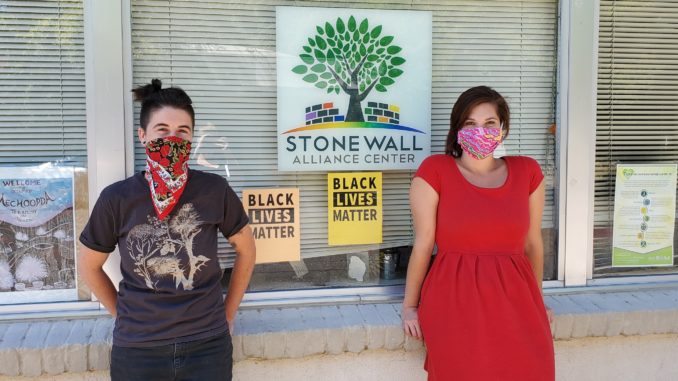
On June 26, Stonewall Alliance Center of Chico had an important announcement to make and sent out an email blast to drum up support. Motivated to act in the wake of the murder of George Floyd, the LGBTQ advocacy organization launched the QT*POC Direct Aid Fund dedicated to assisting queer and trans people of color.
That same night in Chico, two gay black men were attacked and beaten so severely that they required hospitalization. While this incident is under investigation, much of the community—including Stonewall—reacted with outrage, with many calling it a hate crime and demanding justice for the victims.
Since Floyd’s killing, there has been an increased awareness surrounding violence against marginalized communities in America, along with a wave of support and work being done to address racial injustice and inequality. Stonewall’s organizers, like many local advocates, are looking at how they can help with solutions to root issues. In addition to its new fund, the alliance also recently created Safer Action Support with Stonewall (S.A.S.S.), a team of volunteers that focuses on providing safety at protests and other local events led by people of color, such the public meetings of the Chico Community Assembly, a newly formed police-reform group.
Alyssa Larson, Stonewall’s events and volunteers coordinator, said the organization’s latest efforts are a response to current needs of a community fighting for equal rights. The message: “We want to stand behind you, we want to fit into the puzzle where we can help you.”
June also marked the annual Pride month held in honor of the 1969 Stonewall Riots, a demonstration by members of the LGBTQ community—including many people of color—against a violent police raid. That was a watershed moment for LGBTQ liberation, and is the root of the Chico organization’s name. For the 51 years since, LGBTQ people of color have been at the forefront of the fight against police violence, inequity and social injustice, said Marin Hambley, Stonewall’s education and advocacy coordinator.
“Queer and trans people of color were just demanding basic human rights, and we see that still happening,” Hambley said. “The fight is still happening, and this feels like the most genuine form of LGBTQ Pride—this sort of racial justice movement—as well.”
The fight is local
Kitana Jade has been crying herself to sleep lately. She can’t stop thinking about Floyd; how he died gasping for breath as Minneapolis police Officer Derek Chauvin pressed a knee into the back of his neck for more than eight agonizing minutes. That could happen to my son, she’s thought.
Since Floyd’s death, Jade (who is going by an alias due to fears of being targeted because she is Black, Chinese and Japanese) has noticed more overt racism in her community and toward her family. She’s terrified for their safety and feels powerless.
“I’ve broken down every day, thinking, What can I do? I can’t even walk out my door, because all eyes are going to be on me and my child.”
So she’s hidden herself in plain sight when she has to go out, covering her curly afro so as not to draw attention or glares. She and her son frequently run through a long list of everything he needs to do in order to to stay safe, including: Don’t wear hoodies, don’t blast your music and don’t argue with police.
Jade, also a member of the LGBTQ community, is a volunteer at Stonewall. Her experience, which she shared with fellow volunteers and organizers recently during a meeting, is not uncommon.
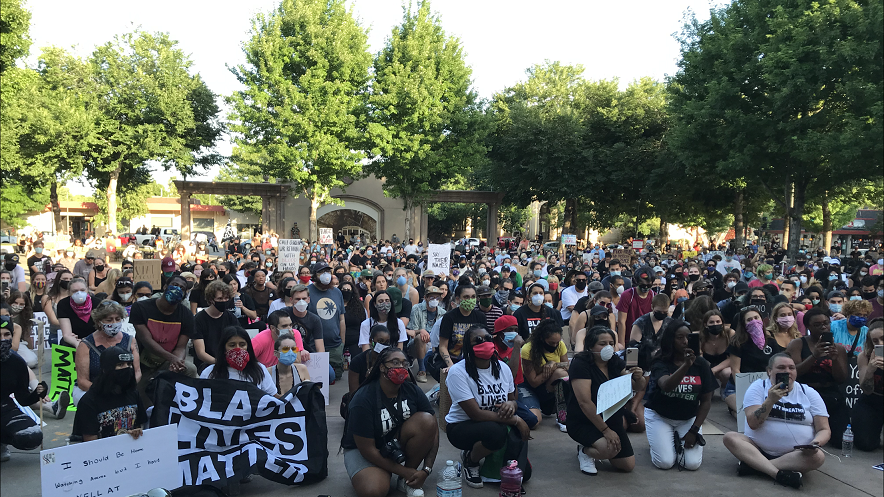
Larson and Hambley frequently assist LGBTQ community members who have been targets of racism, homophobia and transphobia, and who are seeking safety and support. Stonewall currently provides direct aid to queer and trans people, including a peer support group for people of color, HIV and hepatitis C testing, and assistance securing resources such as health insurance and gender marker changes on IDs and other documents.
The QT*POC Direct Aid Fund is for queer and trans people of color exclusively, the organizers said. This population often experiences greater institutional barriers and increased violence because they can be targets of both homophobia/transphobia and racism. Discrimination in academic and professional settings, family rejection and generational poverty also make them particularly vulnerable to financial emergencies.
So far, response to the fund has been great, Larson said. Stonewall has raised enough to grant over $2,000 to those in need, and help an individual secure a vehicle. Applications are available online.
As for the two victims assaulted June 26, Stonewall has been in touch with their families and has offered support, Hambley said. Sources close to the victims say they are not making any public statements at this time.
The case is still under investigation by the Chico Police Department. The department announced on Facebook on June 29 that it had received multiple calls and social media complaints regarding the investigation.
“We want to assure our community we take these investigations very serious and are completing a thorough investigation into this matter,” the post states.
In a recent email response, police Commander Greg Keeney said that search warrants have been served in the case and witness interviews are still in progress.
Vice Mayor Alex Brown has heard from many Chicoans disturbed by the attack. She directly followed up with the city manager and addressed the assault publicly on social media.
“My heart goes out to those who were attacked, and their families,” she wrote on Facebook. “Our community is not immune to racism and homophobia. Both exist right here in Chico, both are daily realities for many LGBT*Q+ people and communities of color.”
While she couldn’t comment on case details, this subject matter is personal for Brown, as she identifies as queer and gender nonconforming. She told the CN&R that people often make disparaging comments about her gender identity “as if it makes me less than I am, or less credible.”
The more marginalized communities someone belongs to, the more it places them at risk, she added: “It’s weaponized and kind of turned against you.”
Safety in numbers
Floyd’s death ignited a groundswell of grassroots support locally, beginning with peaceful and passionate marches and protests in downtown Chico. The S.A.S.S. team was formed at that time in response to multiple demonstrations hosted by people of color that were canceled due to threats of violence. Stonewall assembled 20 volunteers and six team leaders with experience ensuring safety at previous Stonewall events.
Since then, S.A.S.S. has provided protection through observation and de-escalation at protests and events such as the local Juneteenth actions and celebrations.
Rae Flores-Owen, an indigenous Mexican-American woman, has volunteered for the S.A.S.S. team. She’s a co-faciliator of Chico Community Assembly and has responded when assembly members have been followed outside of events and has looked out for aggressive counterprotesters.
Chico Community Assembly formed amid local protests this spring. Founded, organized and led by people of color—some of whom are queer and/or trans, said Flores-Owen—the assembly’s main effort is exploring how “defunding” the Chico Police Department could lead to less police violence and more social services.
Lately, the assembly has moved its activities online, due to rising COVID-19 cases, but S.A.S.S. had shown up at its in-person gatherings in the City Plaza, where Flores-Owen was a speaker.
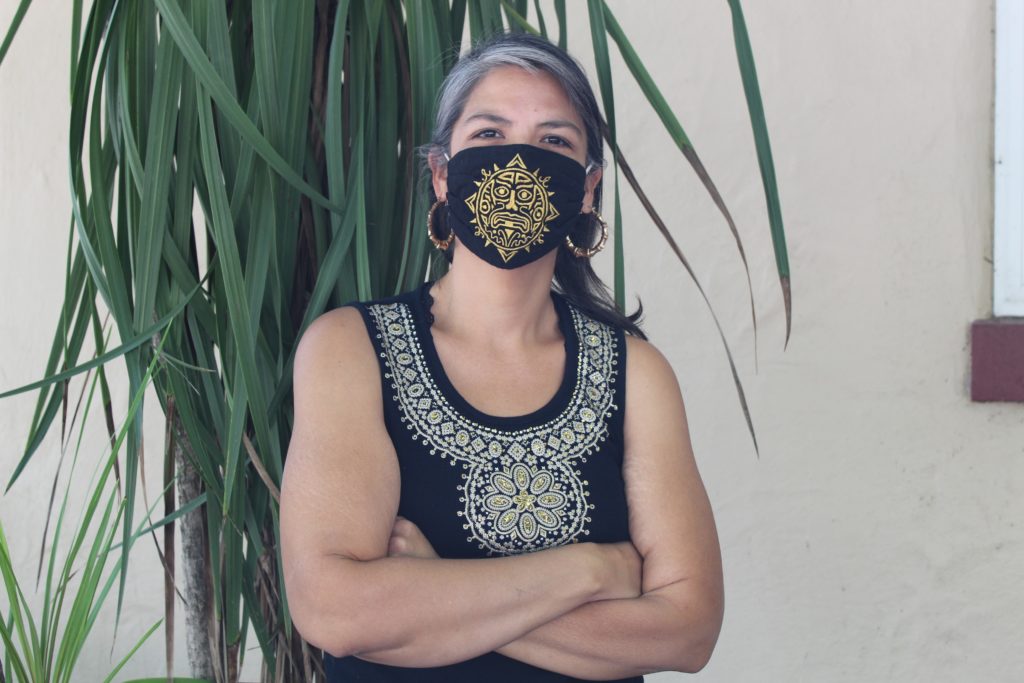
“Being up there and being outspoken, fighting [for] your community … to speak out against injustices—you’re putting yourself out there,” she said. “I know I felt safer … knowing [S.A.S.S. volunteers] were there, knowing I had someone that was just kind of keeping an eye out.”
She called the team a great example of the kind of programs the Community Assembly is advocating for when it comes to social services alternatives to policing.
More inclusive spaces
Stonewall as an organization has made mistakes in how it has allied with people of color, Larson said, noting that it has lacked diversity in leadership positions and its programs. The organization is trying to learn and grow, Hambley added, and has gone through a lot of cultural and organizational changes with the goal of centering, celebrating and including people of color.
The QT*POC fund and the S.A.S.S. team are just small steps, organizers said. The work has to continue in the form of community members showing up at rallies and in the creation of unrestricted options for people of color to become civic leaders and decision-makers.
“One of the things we have learned is to watch and learn and listen, and try to step up to help where we know that we can, rather than trying to lead or direct,” Larson said.
For Flores-Owen, one of the most valuable things to come from the community work done so far has been creating a safe space and platform for the voices of people of color.
To truly see change, she said, “we need to make sure that we are putting the voices of the most marginalized in decision-making roles,” with programs that center the voices of queer people and people of color.
“Racism has permeated every single part of our community,” Flores-Owen continued. “We need action. … We don’t have any more time.”

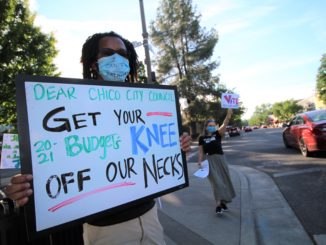
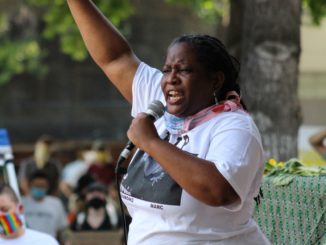

Be the first to comment